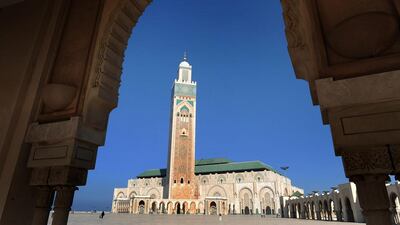Dubai-based airlines are leading the charge to grab market share in Africa as the emirate builds trade ties with the continent.
Emirates Airline last week signed a partnership agreement with Nigeria’s Arik Air, a deal which adds flights to and from Dubai to Nigeria and West African countries. A day later, the budget carrier flydubai announced three new routes in East Africa – complementing Emirates’ network.
Emirates currently flies to 26 destinations in Africa. Last month it launched a daily flight to Abuja in Nigeria. Yesterday it added a second flight to Casablanca, Morocco. It will also introduce a fourth daily flight to Johannesburg on October 26, bringing the daily flights to South Africa to seven.
“We have long believed in the enormous economic potential of Africa. That is why we have constantly looked to grow and boost our passenger and cargo network within the continent,” Emirates said.
Flydubai, which operates flights within a five-hour radius of Dubai, said that North and East Africa are important markets.
“With businesses using Dubai as a gateway into North and East Africa, where we fly to nine destinations, our routes reflect the demand and need to serve underserved markets,” the carrier said.
The Dubai Chamber of Commerce and Industry is one of the organisations in the emirate seeking to promote business ties with the continent. It opened a trade office in Ethiopia in 2012 and plans to launch others. The city is also emerging as a hub for multinationals looking to serve the continent.
The UAE has emerged as one of the leading foreign direct investors in Africa. The telecoms operator Etisalat, based in Abu Dhabi, has a presence in several African markets, including Sudan, Tanzania, Benin, Gabon and Ivory Coast. In May, Etisalat finalised the acquisition of a 53 per cent stake in Maroc Telecom, giving it access to Burkina Faso, Mauritania and Mali.
Dubai carriers also face competition from regional rivals, with both Turkish Airlines and Qatar Airways adding new routes into East Africa.
But despite the potential on offer in the market, the aviation sector is still lagging behind other regions.
The secretary general of the African Airlines Association described the infrastructure as “deficient, dilapidated and not coping with the growing airline industry”, adding that Africa needs to develop its airports, runways, navigation systems airports that operate 24 hours a day.
The Sydney-based Centre for Aviation Capa in its global outlook for this year said that the African market remains hindered by a set of challenges such as high passenger charges that are above the global average as well as fuel taxes that are 50 to 100 per cent higher than the world average.
Moreover, travel restrictions can limit Africans travelling between African countries.
In Nigeria, the government is keen to renovate all 22 airports by the end of next year, but is facing difficulties attracting foreign investors, according to Capa.
selgazzar@thenational.ae
Follow The National's Business section on Twitter

